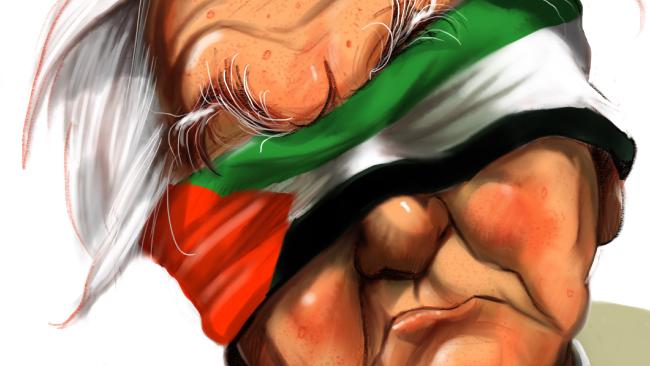It is something of an event when a longstanding friend of Israel chooses to publicly criticise it and recommend recognising Mahmoud Abbas’s Fatah-controlled Palestinian Authority (but not Hamas-controlled Gaza) as a sovereign Palestine.
In the case of former prime minister Bob Hawke, writing recently in The Australian Financial Review, this was always going to be newsworthy, given his long role in passionately standing up for Israel in the Labor movement amid the radical furies of the 1970s.
Accordingly, Hawke’s views command attention and their provenance can have an impact on an ALP seeking to define its stance.
In fact, it probably has: since his piece appeared, former Labor foreign ministers Gareth Evans and Bob Carr have renewed their own calls for recognising Palestine and they have been joined by former prime minister and foreign minister Kevin Rudd.
Hawke was once an eloquent proponent of the view that Israel could not relinquish territories to forces inimical to its existence. Yet his views began to alter, perhaps as early as the late 70s, but certainly by the mid-80s. It is not unreasonable to suppose that his Israeli Labor counterparts, who increasingly adopted the view that a Palestinian state might defuse the conflict, exerted an influence on his thinking.
Witnessing a seemingly unending sequence of bloodshed and uneasy respites over decades inclines people of goodwill to suppose that a bold initiative might break the tragic logjam. And indeed, the Israeli Labor Party did eventually embrace this point of view, chartering in 1993 the Oslo peace process with Yasser Arafat and his Palestine Liberation Organisation, upon whose probity its ultimate success depended.
It did not work out as intended, at least on the Israeli side. The PA regime established in Gaza and Jericho in 1994, later progressively extended to other major population centres in the West Bank, proved a corrupt and violent entity that, far from fostering a renovation of Palestinian society away from terrorism and conquest towards peace and accommodation, incubated the jihadist terror organisations of Hamas and Islamic Jihad.
Children within the PA became hostage to an educational system replete with incitement to hatred and murder. One need only view a few video clips of Palestinian classrooms, with their pupils interviewed openly and proudly extolling the religious and national duty of murdering Israelis, to see it works.
None of this was altered or ameliorated by Israel’s transfer of territory, funds and, tragically, even arms, to Arafat’s forces, to say nothing of the vast inflow of foreign capital: in the Oslo era, Palestinians became the largest per capita recipients of international aid while, for example, tragically destitute Niger, with one doctor per 33,000 people, got peanuts.
Ambitious peace plans, going beyond what most Israelis before, then and since regarded as prudent, the first brokered by US president Bill Clinton in 2000-01, the second proposed by then-Israeli prime minister Ehud Olmert in 2008, were rebutted without counter-offer by the Palestinian Authority.
Indeed, Arafat’s response in 2000 was to launch a terror wave of suicide bombers against Israel that lasted four years and claimed the lives of more than 1100 Israelis. In the years since Oslo, more Israeli lives have been snuffed out by terrorists than had been in all 45 years of Israel’s national existence that preceded Oslo.
The wonder, then, is not that Hawke changed his view on dealing with the PLO. Rather, the wonder is that many including Hawke continue to subscribe to this viewpoint, long after the Oslo process had been tested to destruction and ruination. It is peculiar to read Hawke today, thinking and arguing as though Oslo never happened, as if dealing with Arafat’s lieutenants and loyalists had never been tried.
Thus, he now writes, “I and the friends of Israel around the world are fearful that in a real sense we may be witnessing again after thousands of years a giant Eyeless in Gaza. Is there not emerging the danger of Israel being blinded to the threat to its very soul and the vision of its future?”
Other than one small change of phrase, Hawke has lifted verbatim a passage from a speech in May 1988 where he first voiced the view that Palestinian statelessness was the key issue.
Read the full article by Daniel Mandel at The Australian (subscription required.)

